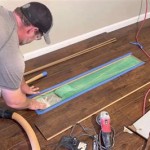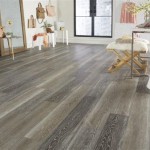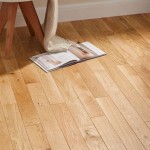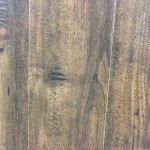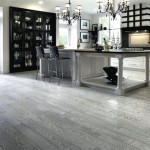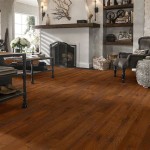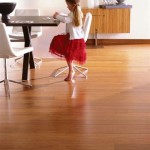What Is Engineered Hardwood Flooring: A Comprehensive Guide
Engineered hardwood flooring, a versatile and durable flooring option, has gained immense popularity due to its superior performance and stunning aesthetics. Understanding the essential aspects of engineered hardwood flooring is crucial before making an informed decision for your home.
Composition and Structure
Engineered hardwood flooring consists of multiple layers, each serving a specific purpose. The top layer is made of genuine hardwood, giving it the look and feel of solid hardwood. Beneath the hardwood layer lies a core of high-density fiberboard (HDF) or plywood, providing stability and moisture resistance. A bottom backing layer adds rigidity and dimensional stability to the flooring.
Advantages of Engineered Hardwood Flooring
Engineered hardwood flooring offers several advantages over solid hardwood:
- Dimensional Stability: HDF or plywood cores prevent expansion and contraction caused by moisture changes, making engineered hardwood suitable for moisture-prone areas like kitchens and bathrooms.
- Durability: The multiple layers provide enhanced durability and resistance to dents, scratches, and wear.
- Moisture Resistance: HDF cores are treated with moisture-resistant resins, making the flooring less susceptible to water damage.
- Variety: Engineered hardwood is available in a wide range of species, stains, and finishes, offering endless design possibilities.
- Ease of Installation: Unlike solid hardwood, engineered hardwood can be installed over concrete or radiant heat systems using a variety of methods, including floating, glue-down, or nail-down.
Installation and Maintenance
Professional installation is recommended for engineered hardwood flooring to ensure proper fit and longevity. Regular maintenance involves sweeping or vacuuming to remove dust and debris. Occasional damp mopping with a pH-neutral cleaner is sufficient for cleaning.
Durability and Lifespan
The lifespan of engineered hardwood flooring varies depending on the quality of materials, maintenance, and traffic levels. With proper care, it can last for 20-30 years or more.
Conclusion
Engineered hardwood flooring is an exceptional flooring option that combines the beauty and durability of hardwood with enhanced moisture resistance and dimensional stability. Its versatility, variety, and ease of installation make it a suitable choice for a wide range of interior design styles and lifestyles. By understanding the essential aspects of engineered hardwood flooring, you can make an informed decision that will enhance the aesthetics and functionality of your home for years to come.

What Is Engineered Wood Flooring Made Of And Beyond Blog

Solid Hardwood Vs Engineered Flooring Carpet One Floor Home

Hardwood Vs Engineered Wood Flooring Which Is Best For You Forbes Home

Engineered Flooring Vs Laminate Everything You Need To Know Forbes Home

Engineered Hardwood Guide

10 Major Disadvantages Of Installing Engineered Wood Flooring A Floor Guide Reallyfloors America S Est Hardwood

Engineered Hardwood Flooring Vermont Wide Plank

Engineered Wood Flooring Vs Solid Hardwood

6mm Wear Layer Thick Engineered Wood Flooring

Hardwood Vs Laminate Engineered Floors What S The Difference Clean My Space

